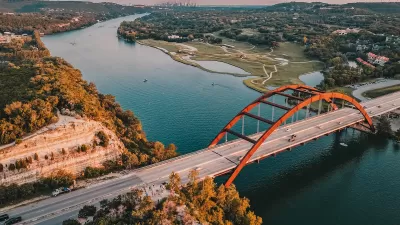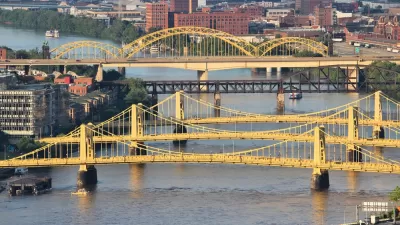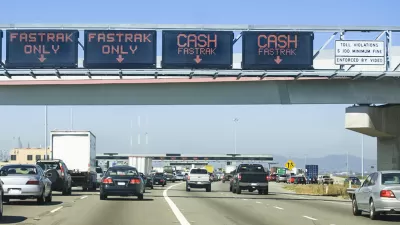With the federal government unable to agree on much of anything, state and local taxpayers are bearing the burden for repairing and replacing America's aging infrastructure says a new report from Standard & Poor’s Rating Services.
One of the many issues to have been largely left out of this year's presidential debates, America's growing infrastructure deficit (twice the size of the federal budget deficit) is unlikely to be addressed anytime soon by a federal government unable or unwilling to discuss trillions of dollars of new spending, reports Ashley Halsey III. In addition to the billions of dollars needed to replace aging roads and bridges, $30 billion is needed for the nation's ports, $107 is needed for the electrical grid, and $635 billion is needed to fix waste and drinking water systems.
"We see an expectation in the foreseeable future for reduced federal
funding," said Geoffrey E. Buswick, the analyst who wrote a recent Standard &
Poor's report on the subject. "The longer there is a tepid economic recovery,
the more difficult it is to raise rates. There's already a gap in
funding and it's only going to get greater, so it's the longer term that
we're more worried about than the shorter term."
While some of the funding for necessary infrastructure repairs may come from private investors, local users and taxpayers are increasingly being targeted to fill the federal shortfall.
FULL STORY: Burden for rebuilding infrastructure may fall to states

Maui's Vacation Rental Debate Turns Ugly
Verbal attacks, misinformation campaigns and fistfights plague a high-stakes debate to convert thousands of vacation rentals into long-term housing.

Planetizen Federal Action Tracker
A weekly monitor of how Trump’s orders and actions are impacting planners and planning in America.

In Urban Planning, AI Prompting Could be the New Design Thinking
Creativity has long been key to great urban design. What if we see AI as our new creative partner?

King County Supportive Housing Program Offers Hope for Unhoused Residents
The county is taking a ‘Housing First’ approach that prioritizes getting people into housing, then offering wraparound supportive services.

Researchers Use AI to Get Clearer Picture of US Housing
Analysts are using artificial intelligence to supercharge their research by allowing them to comb through data faster. Though these AI tools can be error prone, they save time and housing researchers are optimistic about the future.

Making Shared Micromobility More Inclusive
Cities and shared mobility system operators can do more to include people with disabilities in planning and operations, per a new report.
Urban Design for Planners 1: Software Tools
This six-course series explores essential urban design concepts using open source software and equips planners with the tools they need to participate fully in the urban design process.
Planning for Universal Design
Learn the tools for implementing Universal Design in planning regulations.
planning NEXT
Appalachian Highlands Housing Partners
Mpact (founded as Rail~Volution)
City of Camden Redevelopment Agency
City of Astoria
City of Portland
City of Laramie





























